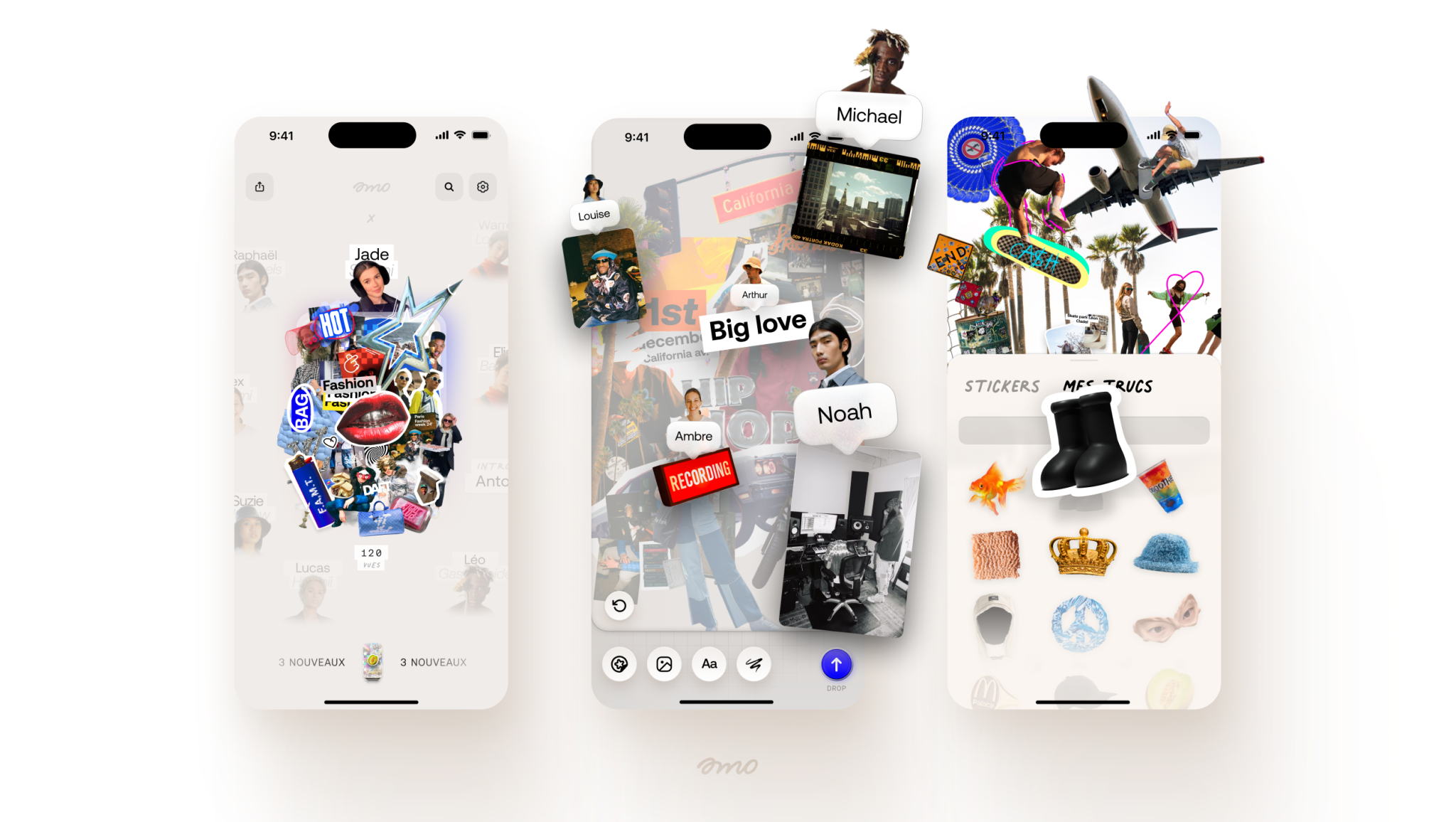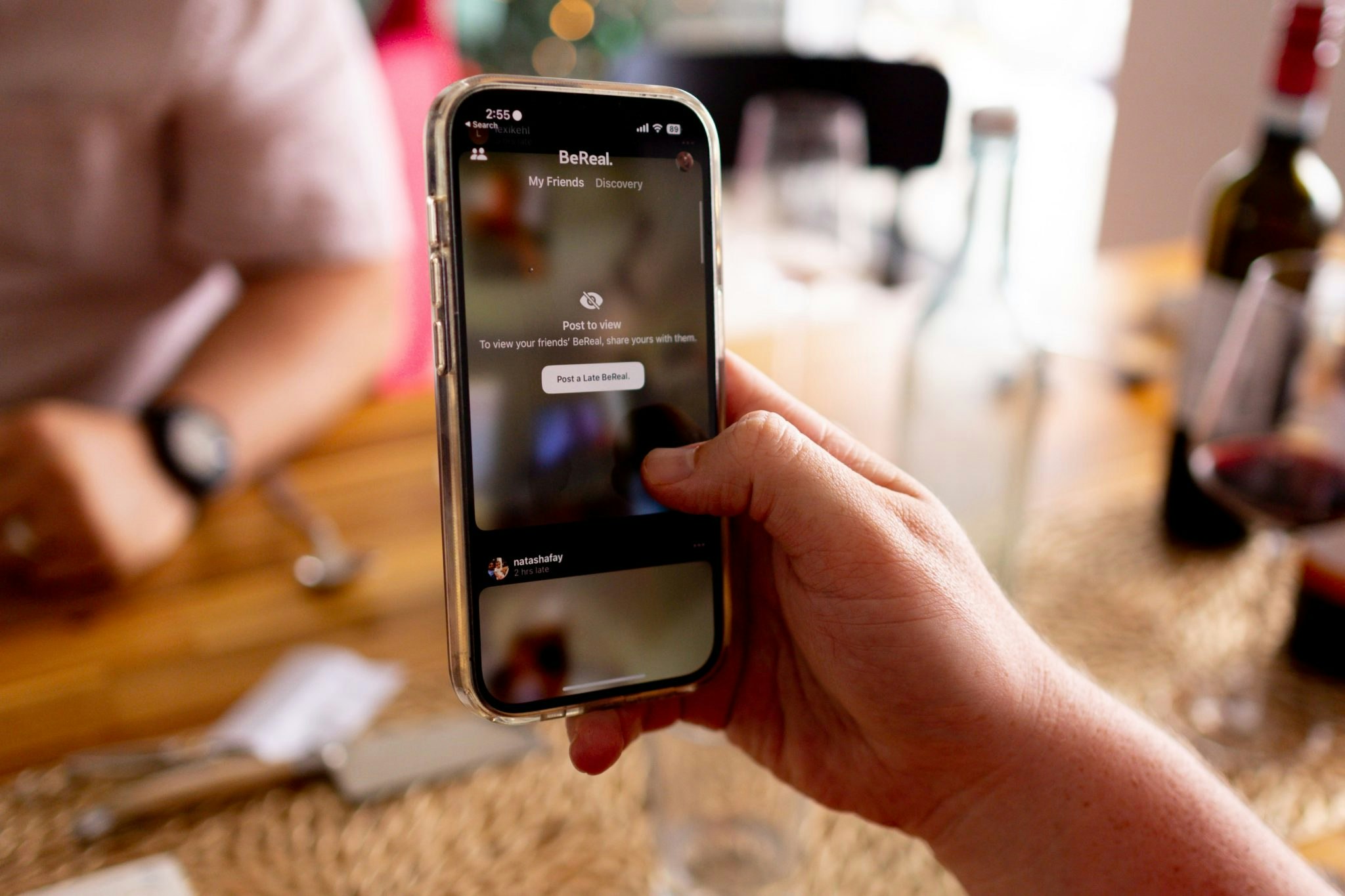After months of mysterious teasing, France’s new social media app is live.
ID is the invention of startup amo and its founder Antoine Martin, who is considered the godfather of France’s emerging social media app scene. His previous company, Zenly, was sold to Snap for about $250m in 2017, making ID’s launch highly anticipated in the small bubble that is French tech.
Free app ID enables users to interact by “dropping” content on each other’s profiles known as “boards”. Its popularity comes on the heels of another French social app, BeReal, finding global popularity and a place in the cultural canon of social media.
Ten days after launch, my board is still completely empty. As I meet the amo team in their ultra-slick Parisian office — think turntables in a corner and posters for the latest ‘Basquiat x Warhol’ exhibition on the walls — I tell Martin and his cofounder Michael Goldenstein, also ex-Zenly, that I don’t think I get it.
As it turns out, that’s not entirely my fault. ID largely functions thanks to other people filling up their friends’ boards. Martin snaps a picture of me, drops it on my profile and adds a Sifted logo in the background.
He explains that users are meant to navigate each other’s boards, dropping memes, pictures or stickers, drawing and writing, and of course filling up their own profile.

Users are getting creative. The founder of French burger joint Dumbo promised free food to people who dropped burgers on his profile. One user asked their friends to draw sketches of them. Another one stuck a game of Connect 4 on their board, added a small crowd of people watching and pinned a picture of everyone they beat.
Even Martin’s mother is doing a much better job than I am — her board features cute pictures from the founder’s childhood laid upon recent ones of his son.
“We gave people much more freedom to fill in their boards,” says Martin. “It’s the opposite of Instagram’s three-by-three grid.”
All the boards are visible to anyone on the app, but users can limit friend requests.
$18m seed round
Martin and Goldenstein raised an $18m seed round for amo led by high-profile investors Newwave, Coatue and DST Global Partners and including VCs Alven and Origins. Sifted understands that the company is valued by investors at more than $100m, but amo declined to confirm a number.
Those are big numbers for a non-US startup in the consumer space, at the same time as similar companies like BeReal are starting to seeing their appeal wane.
Amo’s founders are pleased with the launch of ID; thousands of users signed up in the first few days and the app has seen traction in the US, its biggest market by downloads. But the team recognises there is much further to go.
“We know it’s just the beginning and the whole team is heads down working on what’s next,” says Goldenstein.
The short-term objective is to grow as fast as possible, says the founder, and that means bringing new features to keep users on the app. It’s a challenge that amo’s 30-people team, which is made up of many former Zenly employees, is already familiar with.
“Most companies in social, once they catch fire with something new, they spend all their time trying to manage the fire rather than innovating on new things,” says Goldenstein.
“90% of social apps is the execution game, and that’s what this team knows to do best.”
Learning from Zenly
In fact, amo is so focused on growing ID that even its monetisation strategy is still TBD.
“We want to gain a critical size as fast as possible,” says Martin. “If we have a critical size, it won’t be a problem, we’ll make money eventually. That’s not what’s at stake now.”
There is one thing, however, that he is certain about. In 2022, just five years after it was acquired by Snap, Zenly was shut down as the US company announced it was cutting 20% of its team. This time around, Martin is determined to keep doing his thing — without the help of a buyer.
“There were many good things about Snap [...] but towards the end we felt shackled,” he says. “We felt like we could do more than we did.
“This time, we won’t stop — and we think there are other ways than to sell ourselves early or even to sell ourselves full stop.”


